How Chrome extensions can hurt Chromebook performance
I review all types of Chromebooks, from budget-friendly models to those costing more than $1,000. And while I run the same benchmark tests on all of them, I notice a disparity in those results compared to the actual performance. Some $300 Chromebooks turn in benchmarks less than half of those of premium models. But I’ve been able to boost the performance on those entry-level devices so they don’t run half as fast. How? Chrome extensions can hurt Chromebook performance, so de-cluttering them can really help.
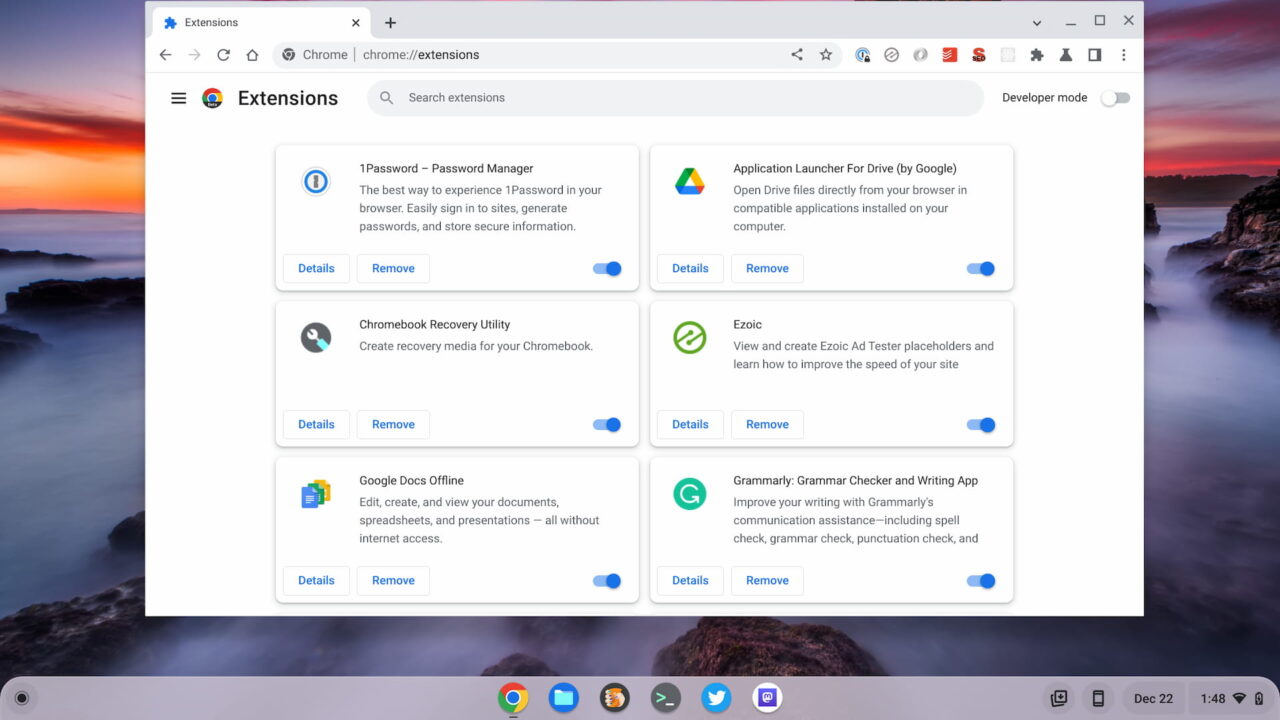
You may not realize it, but all of the Chrome extensions you install and keep active take up a precious resource.
I’m talking about RAM or the memory inside your Chromebook. This is less of a problem on models with 8 GB of memory, which is becoming the baseline capacity. There are still plenty of Chromebooks in use with just 4 GB of RAM, however.
And while you can’t speed up the CPU that powers your Chromebook, you can give it more memory to work with. And that gives the CPU some breathing room because it doesn’t have to swap data in and out of memory to complete its tasks.
One way to do that is to reduce the number of open browser tabs. I know I’m not really telling you anything you don’t know here. A Chromebook that’s running sluggish can regain a little pep in its step simply by closing browser tabs you may not need.
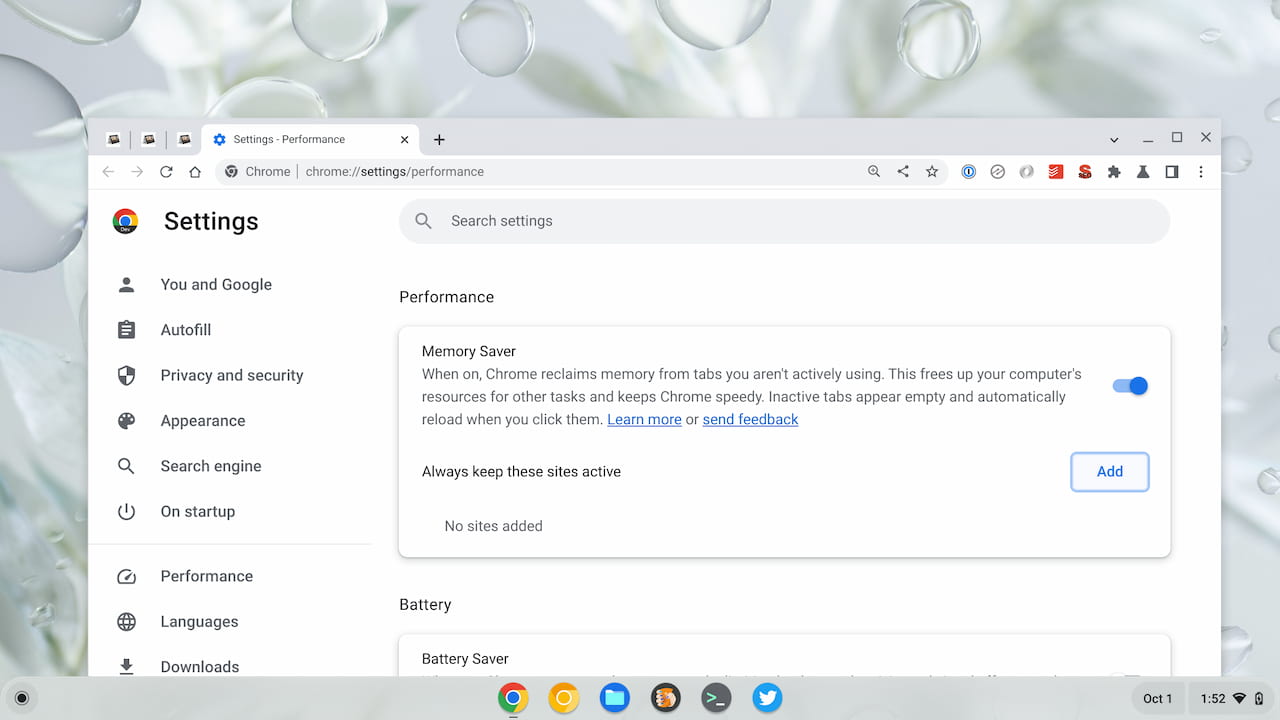
In fact, this approach is similar to the native Chrome Memory Saver feature Google recently debuted with Chrome and ChromeOS 108. When enabled, Google will “freeze up” any inactive tabs to free up memory. That, in turn, lets the CPU run more efficiently because it has a larger memory pool for its tasks.
While that certainly helps, you can do more on your own. You can reduce the number of active Chrome extensions to provide even more memory to your Chromebook.
To illustrate this, I booted up a Chromebook and immediately opened Guest Mode. I don’t allow my extensions to run in Guest Mode, so effectively, this simulates no active extensions. I then opened up six browser tabs for sites I typically use.
Here’s what the memory usage data looks like in this case:
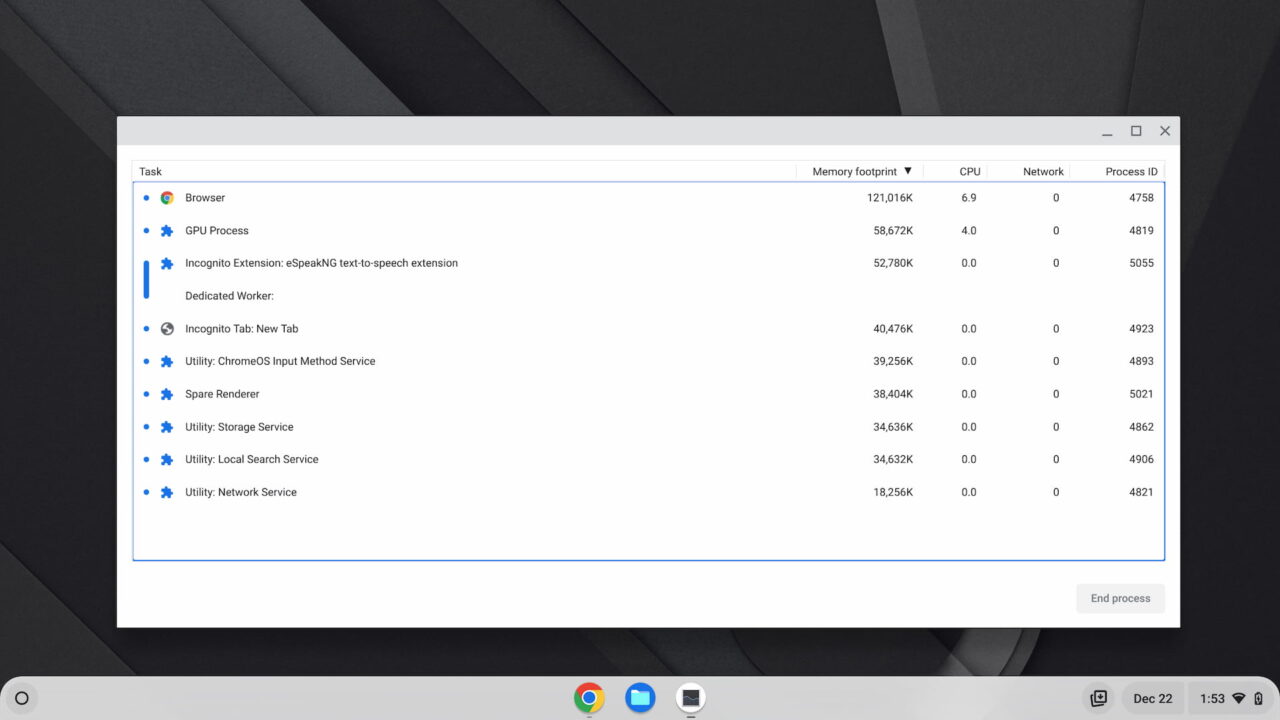
The above may not mean much in a vacuum, so let’s put it into context.
I rebooted the same Chromebook, signed in, and opened the same six browser tabs. In this case, I also had 12 Chrome extensions installed and active on the Chromebook.
Each one is like its own little running application, taking up that precious memory. I actually have to show this in two screenshots because of all the resources used:
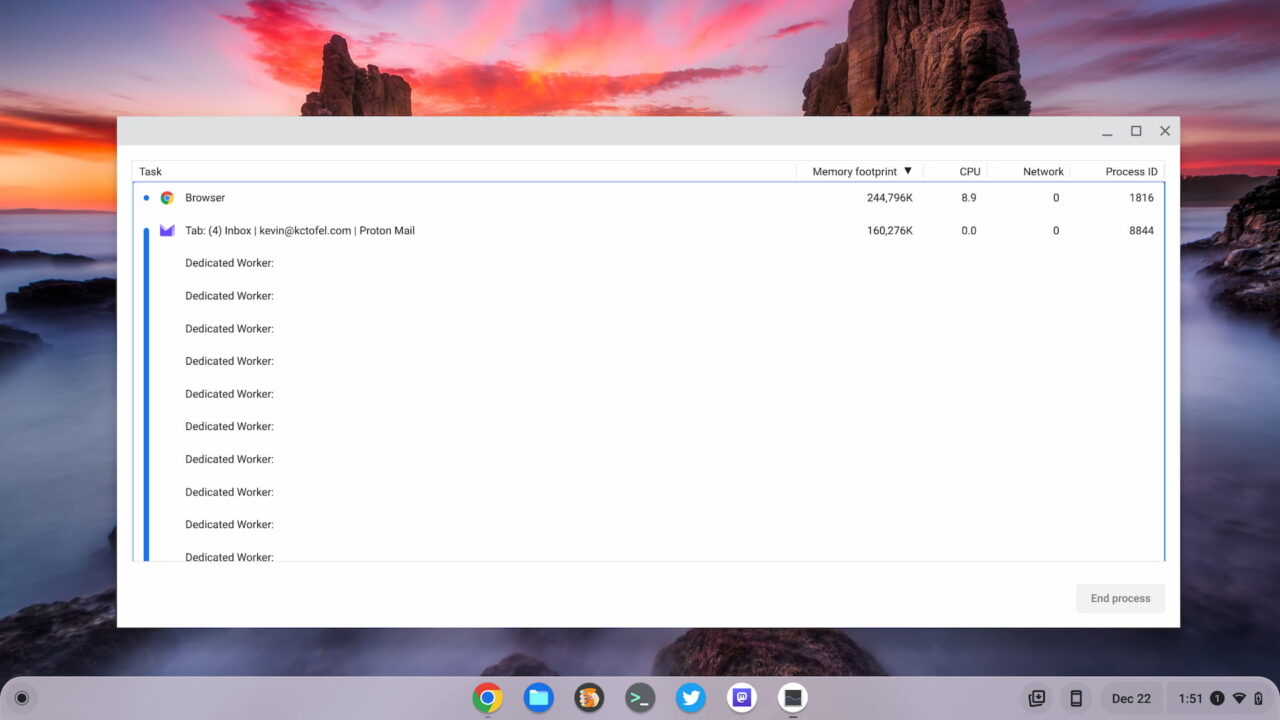
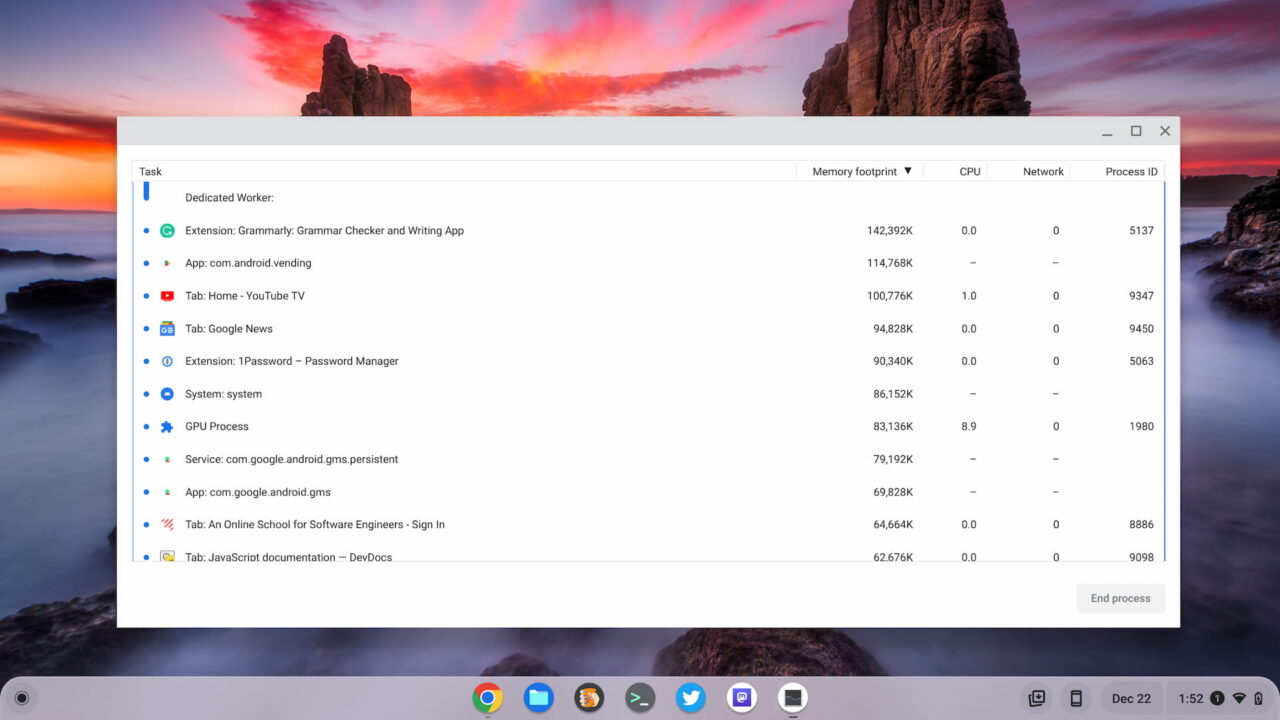
I don’t know why the Proton Mail browser tab is behaving differently in Guest Mode, but that’s really not the point. With both sets of images for comparison, you can see the bigger picture here. Chrome extensions hurt Chromebook performance by using up the limited memory in your device. And that happens even when you’re not actively using them!
One of my goals is to go through all of my Chrome extensions and remove the ones I can truly live without.
The 1Password extension is going to stay for sure. It’s how I manage my online credentials across Chromebooks, a Windows PC, and a Linux laptop. I get a lot of value out of the Grammarly extension but it comes at a price. So I may disable it and test the native ChromeOS spelling and grammar checker.
I still have some extensions that make it easier to share web pages with other sites and people. However, those are likely to go away too: I can natively share things easily to any progressive web app, for example.
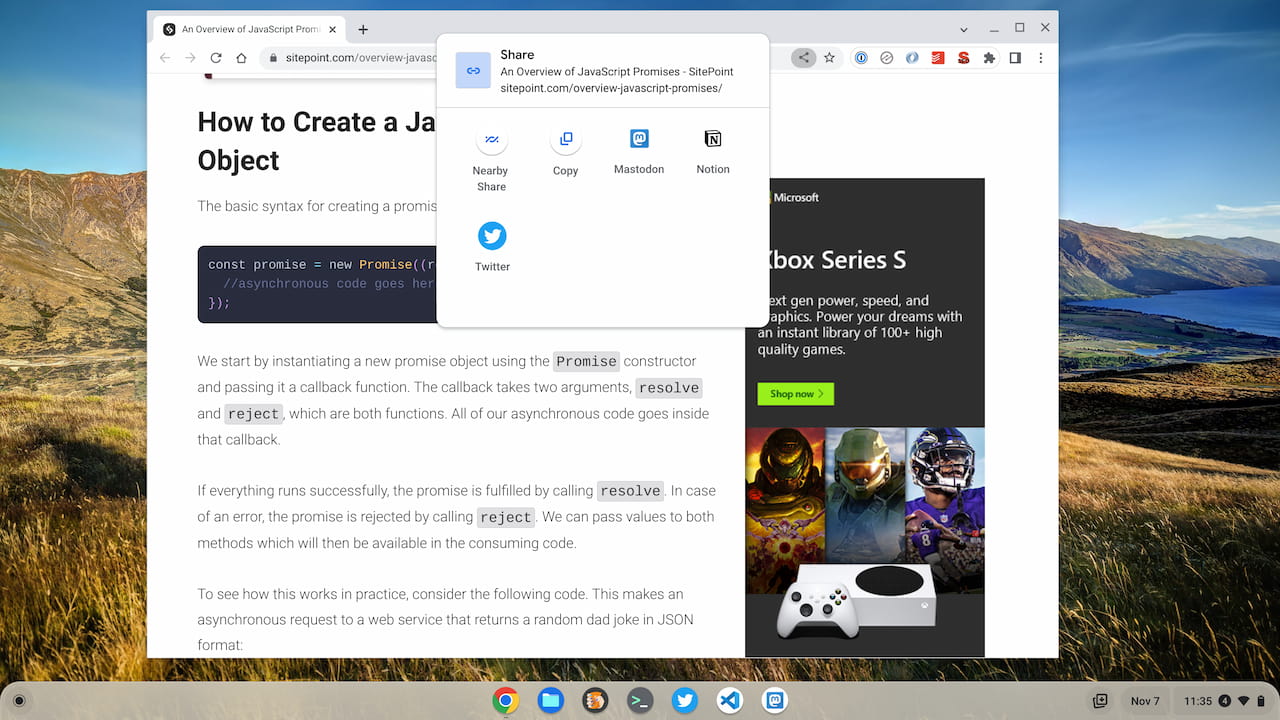
I’m not suggesting that you remove Chrome extensions from your Chromebook that you use daily. By all means, if they solve a problem, you should keep using them!
But it never hurts to evaluate your active extensions and see if keeping them is worth giving up more of your Chromebook’s internal memory. More free memory can help Chromebook performance, even if the processor inside is a simple Celeron CPU.
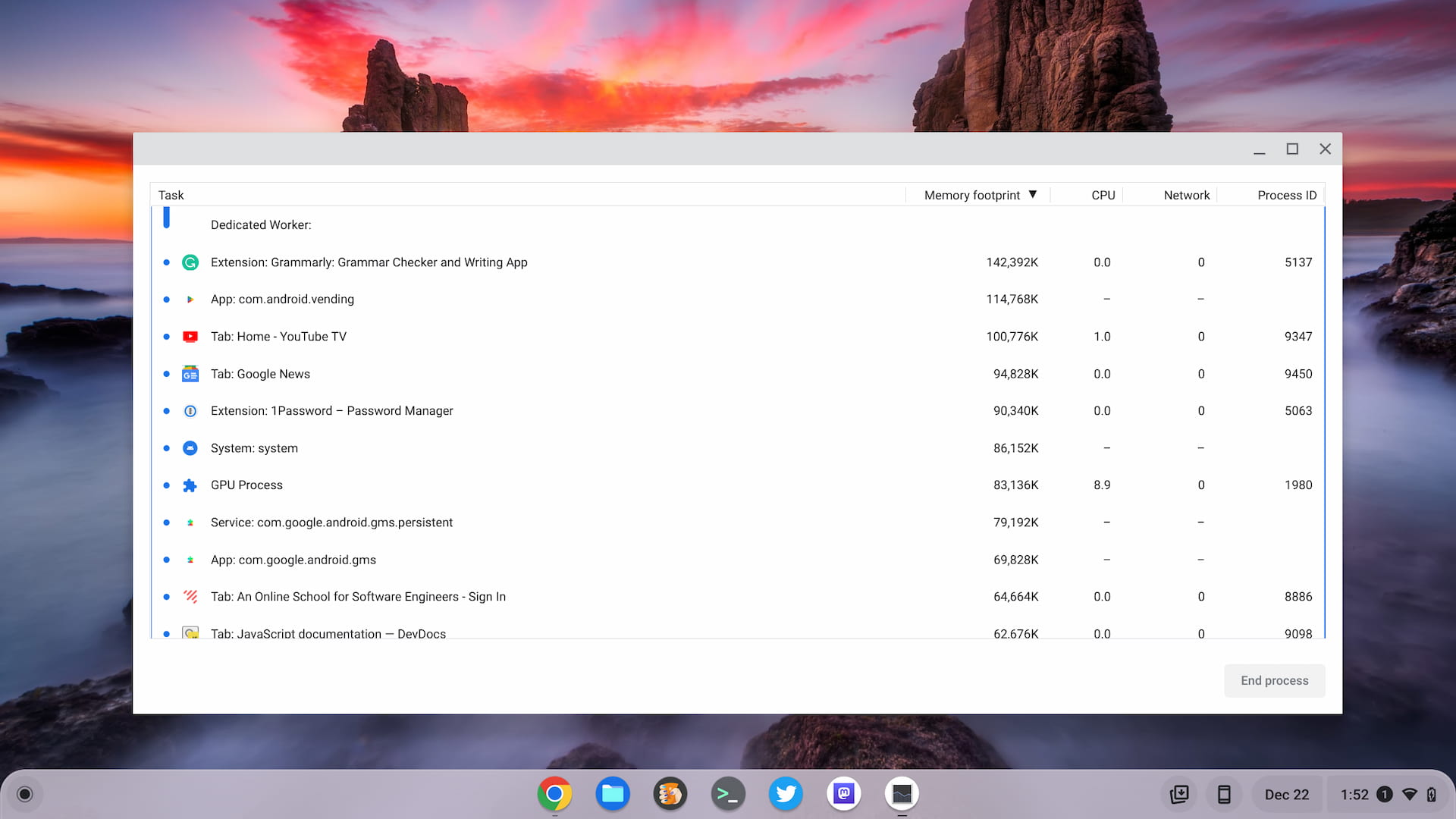
I searched for the grammar flag to enable but found nothing; Version 108.0.5359.125 (Official Build) (64-bit). Any thoughts?
John, I don’t think you need a flag at this point. IIRC the spelling and grammar checks are generally available. Hop into your Settings and search for “spelling”, which will show you where to enable the native spelling and grammar check.
It’s funny how extensions have become what software largely was on windows memory grabbers or security holes and mostly still installed because people can’t be bothered to have a clearance now and then..
Most these extensions at some point or another have security holes in them (just google it) which is another reason to only run if really needed.
You have to allow each extension to run in incognito mode so that’s a good way to test performance without them.
Surprised no comments from the I really need 624 chrome tabs open brigade….. maybe they can’t find this tab on their machine to comment…
Happy Holidays everyone 🙂
Thanks for this article! Though I have a device with 8Gb, I may spend some time during Christmas to do some investigation.
What about going to the terminal and enabling swap?
Easy to save with extension manager, freeze extension
I found exactly this as my little, 4Gig Duet started grinding to a stop.
Pro tip, if you run several devices, turn off synching extensions in the little device.